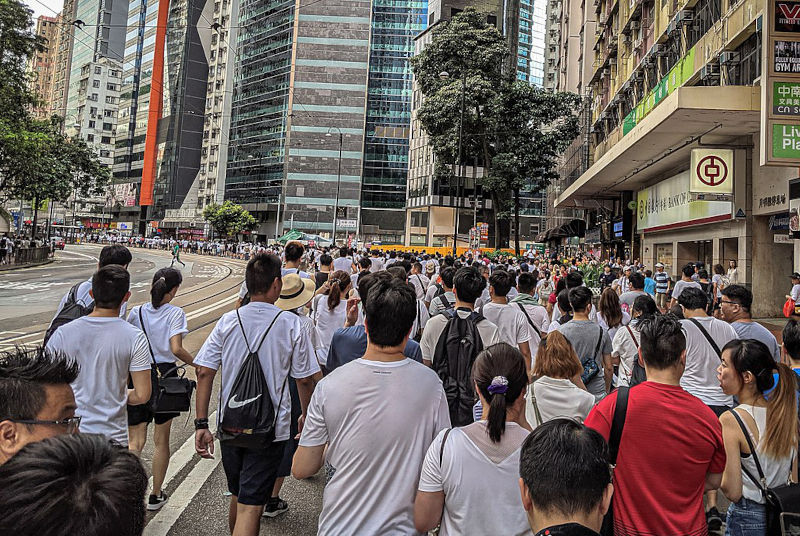President Xi signals that governance in Hong Kong must be more mindful of people's expectations
August 27, 2022
Clear signs are emerging that Hong Kongs essential social contract is undergoing renovation. Moreover, this process looks set to continue. Before examining why this is so, we need to consider the meaning of this expression.
The social contract is a term dating back to the 17th century work of Thomas Hobbes. Its scope was made more explicit in the 18th century by John Locke and Jean-Jacques Rousseau. Briefly, it describes the circumscribed but protective and usually mutually accepted forms of interaction among individuals and groups within their social environment. Modern political philosophers give the term a particular meaning: an unwritten agreement regarding rights and responsibilities shared between a state and its citizens.
Since the new Hong Kong Special Administrative Region government took office on July 1 of this year, many articles have appeared urging various changes in how the government should tackle a range of crucial livelihood issues that are of specific concern to the very large, low-income population in Hong Kong.
The most important way successive Hong Kong governments have assisted the vast grassroots sector has been through the provision of secure, small-sized, Public Rental Housing (PRH) on a scale seen in few other major developed cities. But the demand for Public Rental Housing still greatly exceeds supply, with the result that an estimated 226,000 residents, including many children, still live in tiny subdivided units, and the PRH waiting list has stretched to around six years. Robust recommendations for Hong Kong to work far harder on resolving this problem have intensified. Accompanying these calls are heartfelt exhortations to tackle shortfalls in healthcare, aged care, child care, education and career prospects for young adults, for example.
In mid-July, Professor Lau Siu-kai spelled out his understanding of what followed from the decisive speech President Xi Jinping delivered in Hong Kong on July 1 of this year (see: Xi provides admonitions on good governance in HKSAR, at: chinadailyhk.com/article/a/281316). Lau argued that Xis speech signalled that the HKSAR government needed to substantially change its political mindset so that the new-term government could live up to what the people expect of it. Lau said that the doctrines of laissez-faire, positive non-interventionism, or small government, big market, so glorified in the past, should no longer be followed. He concluded that A more active and people-oriented HKSAR government is desperately needed to promote long-term and sustainable economic development and enhance social justice and fairness.
This is a clear articulation, from an influential scholar, of the need for fundamental changes in Hong Kongs previously long-established social contract. But what did that original, evolved social contract look like? In a series of three influential books, published between 2007 and 2018, another scholar, Leo Goodstadt, explained in detail how business and professional leaders in Hong Kong had long enjoyed a remarkable influence over government policy setting. This pivotal power of influential persuasion dates back to the 19th century and continued, in Goodstadts view, after 1997.
It is true that Hong Kongs achievements when it operated in accordance with the previously dominant social contract were extraordinary. By some estimates, Hong Kong had a lower per capita GDP than India in 1945, yet less than 40 years later, its per capita GDP exceeded that of the United Kingdom. Also, the city government did, during that era, make remarkable strides in building basic PRH for several million residents especially after the deadly riots in the 1960s.
But the problem, as Goodstadt stressed, was always the lack of a full commitment to fair provision of enhanced benefits for the entire population. Many have commented that this sharply experienced disparity was part of the proximate context underlying the multimonth insurrection that took hold from mid-2019.
The International Monetary Fund said, in June 2020, that the COVID-19 pandemic had generated a crisis like no other. As the Hong Kong SAR government began to tackle this exceptional emergency, an important shift in the way in which the social contract operated in the SAR became evident. For well over two years, the perceived rights of the huge number of low-income residents in Hong Kong have been prioritised, by persisting with a zero-COVID influenced strategy, notwithstanding a powerfully argued case by a number of business and professional leaders to move decisively away from that strategy. This approach, which aimed to protect the extensive, hospital-based service that is of central importance in protecting the health of Hong Kongs broad low-income population, closely followed aspects of COVID-19 policymaking in the Chinese mainland.
One way of taking a measure of this change is to consider whether, given the traditionally elevated level of business and professional influence on government in Hong Kong, the COVID-19 pandemic may have been managed in a measurably different way had it struck two or three decades earlier.
Considering how the government in pre-1997 Hong Kong was long seen to favour the needs of the professional and elite business class a trend continued after the creation of the HKSAR this prioritising of the needs of the vulnerable, working class in Hong Kong is not, at first glance, what one might expect. Yet it has happened. This points toward a relatively recent, appreciable shift within certain operational precepts governing the social contract in Hong Kong.
The American political sociologist Barrington Moore argued in the 1960s that eventually, certain embedded societal structures influence the primary protocols of a given social contract. Ultimately, this argument holds that operational political regimes are shaped by the social-class structure of a given jurisdiction. Although it is too early to say that Hong Kong is unmistakably set to confirm these insights, the intensified, influential calls on the new HKSAR government to focus keenly on enhancing social justice (regularly based around President Xis July 1 presentation) signal that further significant adjustments to Hong Kongs social contract may yet follow.
First published:CHINA DAILY HK EDITION August 22, 2022

